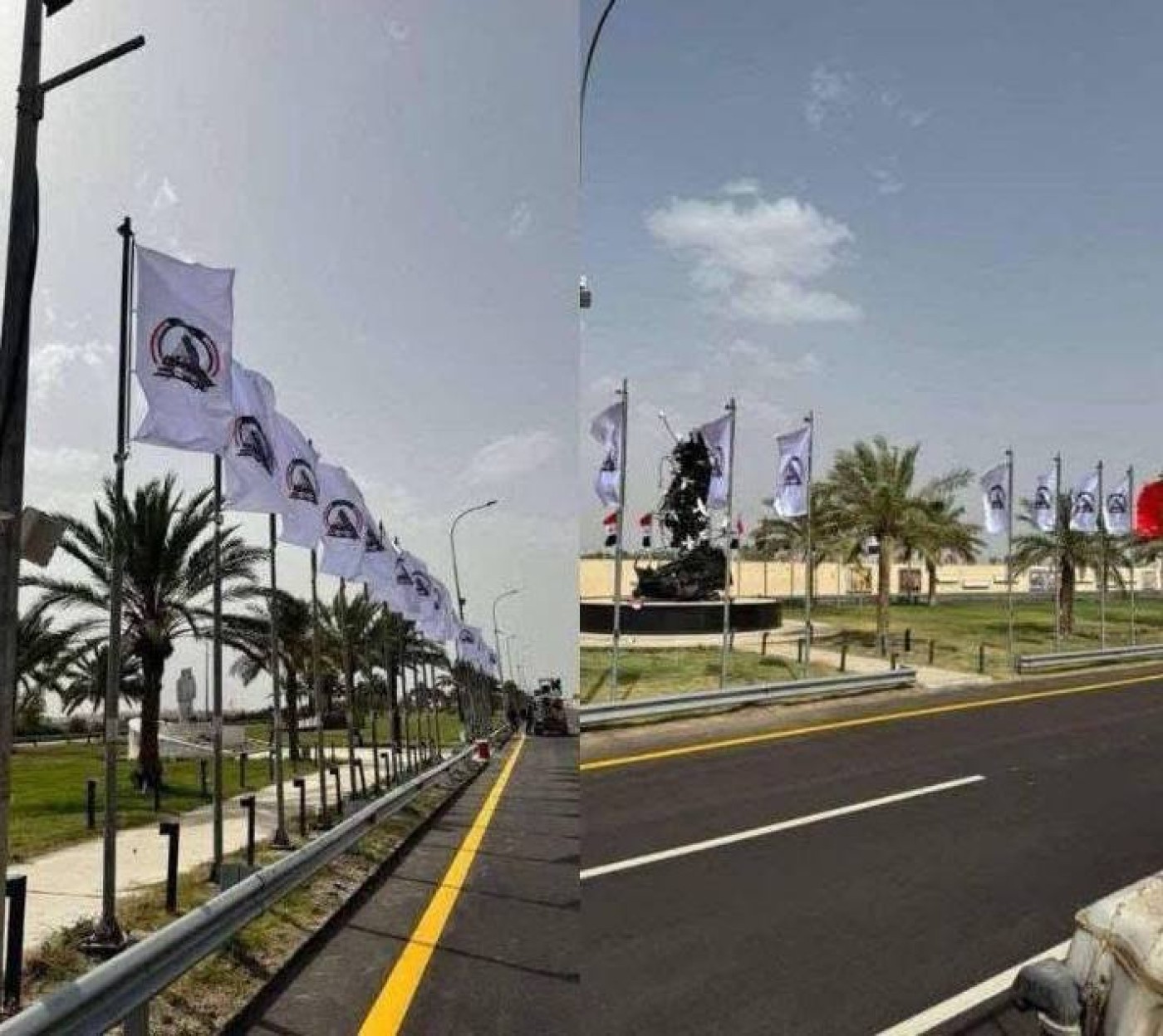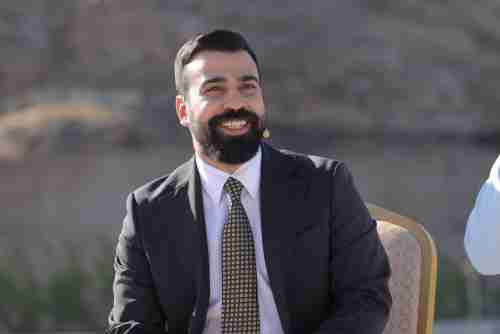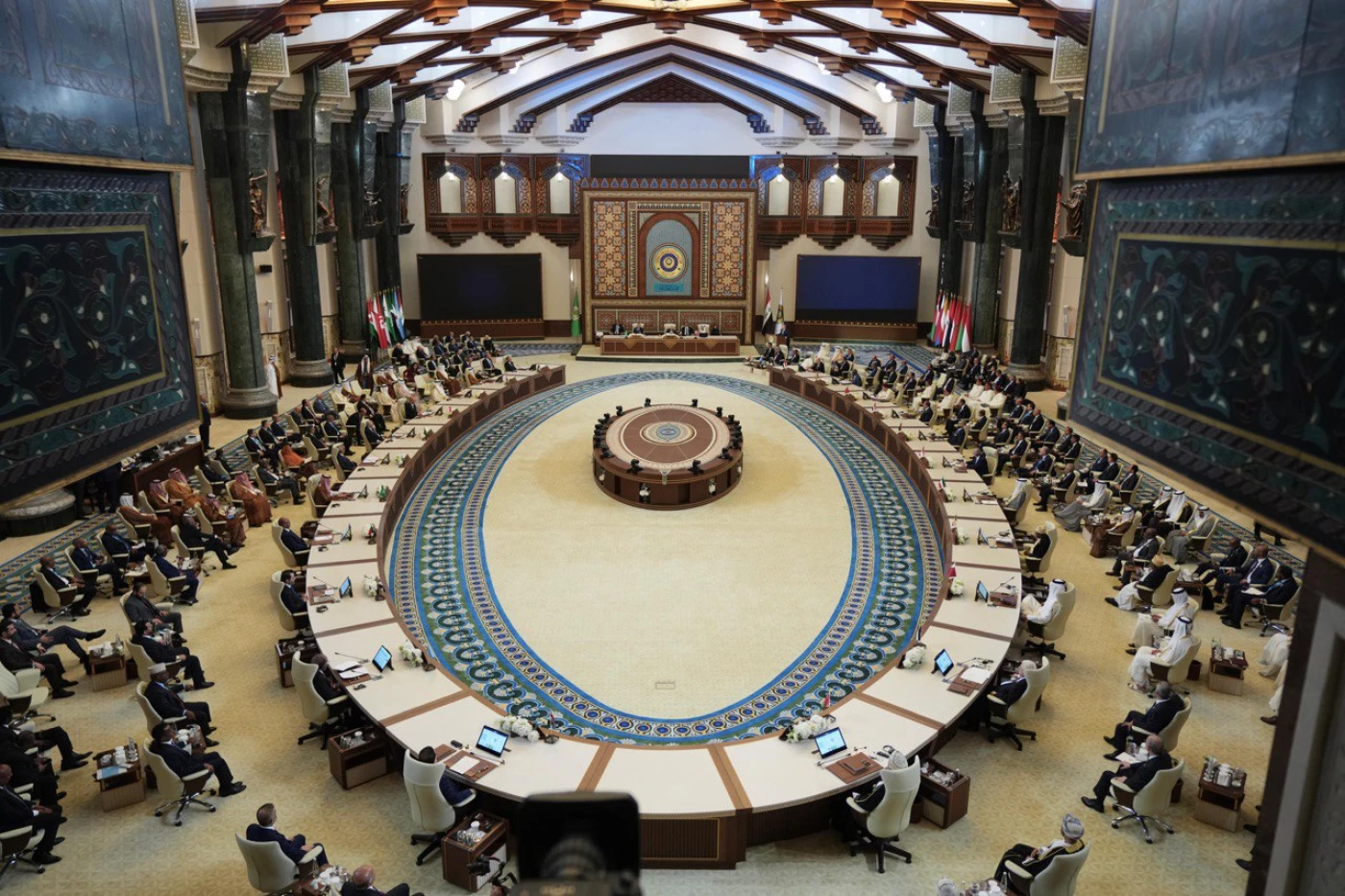ERBIL, Kurdistan Region of Iraq - For months, Iraqi Prime Minister Mohammed Shia’ al-Sudani and his government had boasted about hosting the Arab League summit and bringing heads of Gulf states, among others, to Baghdad, a plan that ultimately flopped on Saturday after several heads of state, mainly from the Gulf, cancelled, and of those who came, some left early.
In the months leading up to the Arab League summit, the Iraqi government led by Sudani had conveyed to the world that they were holding a summit like no other before it.
The country, already struggling financially due to its heavy reliance on oil and its dropping price, had spent hundreds of millions of dollars preparing to host leaders of the Arab world. The money was spent renovating the places where the delegations were supposed to stay, buying brand-new German BMW 7 Series cars to transport the delegations, and many more.
Come Saturday, Iraq did in fact host an Arab summit like no other before it, as dozens of heads of state did not attend, sending only their representatives, and those who attended made an early departure, turning Sudani’s dream of holding a first-rate summit ahead of the country’s November elections into a nightmare and failing to make Iraq the center of the Arab world.
Of over 20 heads of state invited to Baghdad, only five showed up on Saturday.
The five were Qatari Emir Tamim bin Hamad Al Thani, Egyptian President Abdel Fattah El-Sisi, President Hassan Sheikh Mohamud of Somalia, exiled Yemeni President Rashad al-Alimi, and President Mahmoud Abbas of the Palestinian Authority.
Of those five who attended, not all of them stayed for the whole ride either.
The Emir of Qatar, one of the most prominent leaders of the Gulf and the region, took off early and left the summit without even delivering his country’s speech.
The exact reason as to why he left is not clear, but the Emir, having met US President Donald Trump just a few days earlier, was in fact the single most powerful leader in the hall of the summit when he was in attendance, while several other countries had sent their foreign ministers or other officials.
The same happened with the UAE delegation, led by Vice President Mansour bin Zayed Al Nahyan. Their team left the Iraqi capital mid-session without delivering any speech.
Speaking to The New Region on the condition of anonymity, a source close to the Iraqi government told The New Region that the UAE delegation had left the Iraqi capital without delivering their remarks at the summit as a result of their disagreements with the state of Sudan, who shares rocky relations with the UAE and went as far as to take the country to the International Court of Justice on claims that the UAE has long denied.
Also conspicuously absent at the summit was Saudi Crown Prince Mohammed Bin Salman (MBS), who had also met with Trump earlier and helped free Syria from US sanctions.
A well-informed source told The New Region earlier in the week that MBS would be participating in the Baghdad summit, noting that around 100 people from his team had already arrived in the Iraqi capital to make arrangements for his visit.
The source had stressed that the Saudi Crown Prince will partake in the event “barring any last-minute changes.”
Iraqi government spokesperson Basim al-Awadi told local media during an interview on Friday that they expect MBS at the event, citing a recent upgrade in the Saudi delegation’s security detail.
Ultimately, MBS was not present at the summit, and the Saudi delegation was headed by Minister of State for Foreign Affairs Adel al-Jubeir.
Syrian President Ahmed al-Sharaa did not attend the summit either, despite Sudani personally meeting him in Qatar in April and him receiving an official invitation to attend. Sharaa sent Foreign Minister Asaad al-Shaibani to attend in his stead.
King Abdullah II of Jordan was also not in attendance, calling a last-minute rain check, despite Iraq’s long-standing solidarity with the country and consistent provision of fuel to Amman.
These were not the only leaders who did not attend the summit. Heads of state of Oman, Bahrain, and Kuwait did not attend the summit either, resulting in an almost a complete absence of Gulf leaders, with the exception of Qatar. This comes while Sudani’s government has time and again stressed the importance of Gulf states and has hailed their relations with Iraq and was hopeful to bring all their leaders to Baghdad, but to no avail.
Why such absence of Arab leaders?
The mass absence of Arab heads of state, most notably those of Gulf countries, may have come as a surprise to Sudani’s government, but not to many closely observing the developments in the region.
In a post on Facebook, Iraqi researcher and head of one of the country’s prominent think tanks Ihsan al-Shammari wrote only four words following the summit, which the government and Sudani hailed as successful.

Speaking to The New Region on the condition of anonymity on Saturday, two sources close to the Iraqi government cited trouble caused by armed groups close to Tehran ahead of the Saturday summit.
“The low representation of Arab leaders at the Arab Summit held in Baghdad is due to several factors. Foremost among them is the incitement campaign launched by Shiite parties at various levels against Arab leaders and the Arab Summit,” one source said. “The systematic threats targeting Syrian President Ahmed al-Sharaa to prevent him from attending the summit, with the aim of sending the message that Iraq remains within a specific axis, is also a notable reason.”
In the weeks leading up to the summit, Shiite armed groups in Iraq, many close to the forces that helped form Sudani’s cabinet, voiced strong antagonism against Sharaa visiting Baghdad.
Trump, Saudi’s MBS, and Sharaa had on Wednesday met in Riyadh after the US president said he would relieve Syria of all sanctions, making all of them some unfavorable faces by Iraq’s ruling pro-Iran factions, and this was not just talks.
In the days leading up to the summit, the armed factions had covered up roads leading to and from Baghdad airport with murals and posters of militia leaders and flags of the groups. The same was done to the roads leading up to the venue of the summit. That way, even if the leaders of the Sunni world were to attend, they would have quite a ride to the summit seeing all those pro-Iran faces.

The move had worried Sudani’s government, which was by then desperate to make sure everyone attended the summit.
On May 10, the Iraqi Ministry of Interior said that “no demonstrations will be organized, regardless of the reasons, whether service-related or otherwise,” between May 11th and May 20th.
“No demonstration licenses will be issued, and any attempt to do so will be in violation of the law. Instructions have been issued to arrest anyone attempting to demonstrate,” the ministry said at the time.
But the armed groups did sabotage Sudani’s goal.
According to one of the sources close to the government, another reason why the Gulf leaders may not have attended was the unprecedented acts of an Iranian military general.
“Another reason is the visit of the commander of the Quds Force of the Islamic Revolutionary Guard Corps (IRGC), Esmail Qaani, to Iraq two days before the summit, and the publication of a photo of himself, a precedent not seen in his previous visits to Iraq,” the source said.
But those were not the only reasons Gulf leaders did not come to Baghdad.
Kuwait
One of the most prominent reasons that leaders from Gulf countries did not attend the Baghdad Summit was due to Iraq’s ongoing dispute with Kuwait over the Khor Abdullah waterway on the Gulf.
“The Gulf Cooperation Council countries are taking a clear and supportive stance toward Kuwait on this issue,” one of the sources said.
Such sentiment was also shared by Iraqi political activist Majasha’ al-Tamimi, who, despite defending Iraq, admitted that “the Khor Abdullah issue may have been one of the factors that influenced the level of representation of some Gulf states, most notably Kuwait, prompting some countries to take a stance of solidarity.”
Speaking to The New Region on Saturday, Kuwaiti researcher Abdullah Khalid al-Ghanim said that the low representation of Arab heads of state casts doubts on Iraq’s regional affiliations.
“This low representation cannot be read as a mere protocol flaw or circumstantial discrepancy, but rather is a clear reflection of the level of escalating Arab concern regarding Iraq’s performance in a number of sovereign, security, and diplomatic files,” he said. “It represents a silent political message expressing a complex crisis of confidence.”
“The absence of Gulf leaders from the Baghdad summit can be read as a strategic message of solidarity with Kuwait and an explicit expression of collective sovereign reservations regarding Iraq's judicial/political conduct in this matter,” Ghanim said.
However, Ghanim believed that the Khor Abdullah issue is only part of a series of problems the Arab leaders have with Iraq.
Among other reasons Ghanim mentioned were “those related to what was described as media chaos and explicit ideological incitement against Syrian President Ahmad al-Sharaa, who faced public threats of arrest or assassination if he visited Baghdad.”
“Despite the gravity of these threats, the Iraqi government did not show any decisive institutional stance to curb these voices or secure the diplomatic guarantees considered the minimum for hosting heads of state,” Ghanim said.
What does this mean for Iraq?
According to Ghanim, Saturday’s summit dealt a huge blow to Iraq’s position in the Arab world.
“This collective absence of leaders from the Gulf and Maghreb blocs reflects a clear decline in Iraq's centrality within the Arab system, while simultaneously reflecting various reservations about Baghdad's approach to addressing strategic issues, or its ability to play a pivotal role at a highly sensitive regional moment,” he said.
To Ghanim, this only shows Iraq’s declining position in the Arab world, unlike the image portrayed by Sudani’s government that Baghdad would become the center of the Arab world.
“What happened in Baghdad is not just a limited summit, but a political sign of Iraq's declining position in the Arab strategic pyramid,” he said. “The leaders' boycott or absence, whether out of solidarity with Kuwait, security concerns, or diplomatic slackness, are indicators of a deep crisis of confidence that requires a comprehensive Iraqi review of Iraq's relationship with the Arab world and the nature of its presence in regional affairs.”
A similar sentiment was shared by Iraqi journalist and analyst Bizhar Shareef.
“This is to be a clear message to the Republic of Iraq and Mohammed Shia’ al-Sudani that we are with these states [Kuwait and Syria], and that any actions in the case of Khor Abdullah and Syria is an action against us,” Shareef told The New Region on Saturday. “They [Gulf states] showed Iraq that you cannot share good relations with one state and not the other, as they are all one package.”
“I believe that it became clear to Iraqi authorities that they can no longer practice double standards, you are with us or against us … Iraq now has to choose a side,” he added.



 Facebook
Facebook
 LinkedIn
LinkedIn
 Telegram
Telegram
 X
X


